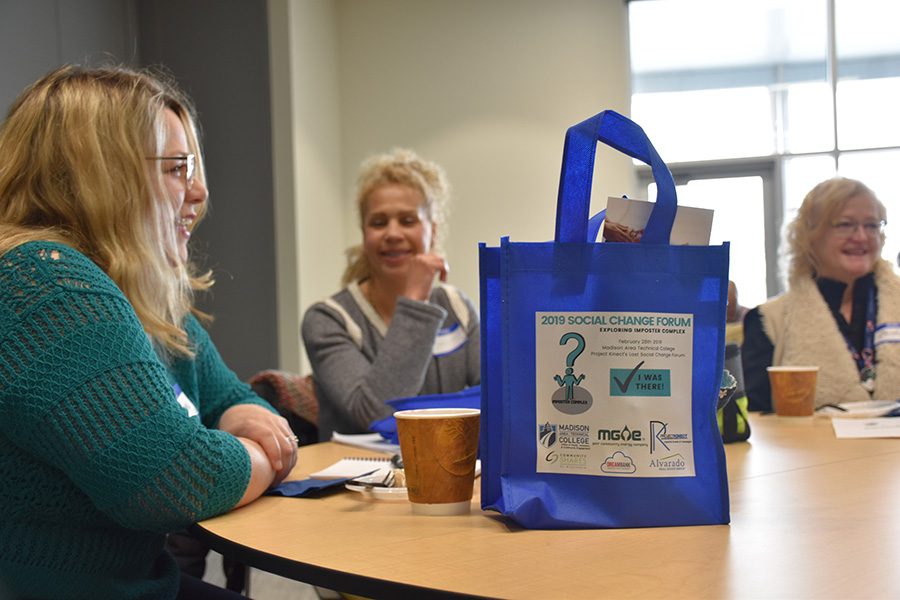Social Change Forum
Discussion at this year’s event focused on the imposter complex
Social Change Forum Feb 28
March 5, 2019
Madison College hosted the fifth annual Social Change Forum on Feb. 28 at the Truax Campus, featuring acclaimed social change activist Tanya Geisler.
Workshops were held throughout the day, and the event concluded with the keynote speech from Zoe Dean Smith. The goal and message of the event was one of social change for the success of the students here at Madison College.
The Social Change Forum is a group of experts who come together to share their experiences, ideas, or passions. This year they highlighted imposter complex. The term, coined by Geisler, describes when you are doing something you think is right or could really make a difference, but you are scared to look like a fraud. The speakers shared their experiences with imposter complex and provided solutions to remind people that they are real and authentic.
The welcome of the event was given by Allie Idzik Heifetz, who is involved with Project Kinect, an organization that advocates for social change. Heifetz welcomed everyone with her confidence and spoke about her own struggle of self-doubt, but reassured her audience that it’s okay, and they deserve to be where they are even when they don’t feel they belong there.
The mic was passed to Jimmy Cheffen, who welcomed the crowd and described what the social change forum is all about. Cheffen was followed by a conversation between Gregg Potter and Mario Garcia Sierra, a representative from MG&E.
The mic started to be passed around in the audience, and the trend of when this mindset pops up is when you realize your presence in a situation could be affecting the way people are judging you in the moment.
People shared imposter complex thoughts they’ve endured.
“Walking into this room full of straight men, I thought, ‘who would listen to this gay guy?’” Potter said. Or “well I’m just a minority here I don’t really have anything to offer” shared Pang, an Asian American woman.
“Sometimes going to meetings and being a person of color, I feel like I don’t fit in there,” a woman expressed.
Those who shared were experiencing intersectionality. Intersectionality is when you have multiple things that you identify with that society oppresses you for, such as race, gender or sexuality.
Next Geisler took the stage to elaborate on what the imposter complex is, and how you can overcome it.
Geisler was being interviewed and she gave the audience a few clear tips of how she feels they could target imposter complex. She made it very clear that the people who experience this are high functioning and have strong values of mastery, integrity and excellence.
“Actual frauds don’t feel like frauds; actual imposters don’t feel like imposters,” said Geisler. She also made it clear that you have to be doing something that matters, like how it matters when this is about social justice.
So what are some tips to overcome this experience of imposter complex? Geisler lists the top five things to recognize in yourself that you may be doing to self-sabotage: procrastination, perfectionism, comparison, leaky boundaries, and people-pleasing.
When you can find what one or more of these things are holding you back you can get control of the imposter complex. Geisler lists the top three parts to focus on grow and break out of self-sabotage: integrity, presence, and action.
Geisler leaves the discussion with the question “are you honoring your word to yourself?” Social change starts with believing in yourself and knowing that it is okay not to know everything. Geisler thinks we should rest in celebration, work hard every day, give ourselves the credit we’ve earned, and surround ourselves with people who radiate our light.































